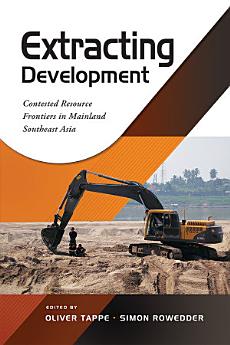Extracting Development: Contested Resource Frontiers in Mainland Southeast Asia
Acerca de este libro electrónico
Discussing transboundary investments in land and water reserves, and localized commodification processes of agrarian resources, this volume not only investigates the competing actors and discourses of resource extraction in Southeast Asia. What is more, the different case studies shed light on the contingent outcomes on the ground of transregional economic dynamics and related socio-ecological transformations. Combining macro perspectives with fine-grained micro-scale studies, this volume offers a multi-faceted picture of extractivism in contemporary Southeast Asia.
Acerca del autor
Oliver Tappe is Senior Researcher at the Institute of Anthropology, University of Heidelberg (Germany), and associated fellow at ISEAS – Yusof Ishak Institute.
Simon Rowedder is Assistant Professor at the Chair of Development Politics, University of Passau, and affiliate member of the Max Weber Foundation Research Group on Borders, Mobility and New Infrastructures at the Faculty of Arts and Social Sciences, National University of Singapore.




